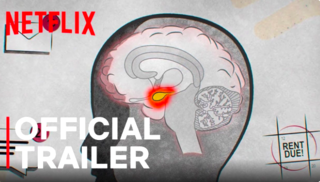Anxiety
Take Your Pills: A Review
A new documentary on benzodiazepines raises fresh questions about dependence.
Posted December 1, 2022 Reviewed by Michelle Quirk
Key points
- After 9-11, benzodiazepine prescriptions rose 23 percent in New York City and 8 percent across the United States.
- Since 9-11, prescribing patterns have skewed younger and older, and for longer periods, despite FDA approval for short-term use only.
- A new Netflix documentary revisits the drug’s history since the late 1950s.

"Take Your Pills: Xanax," a compelling 80-minute documentary directed by Blair Foster that Netflix recently released to subscribers, traces the development, marketing, and widespread prescribing of the drug and its close associates Valium, Librium, Klonopin, and Ativan from the 1950s to the present day.
Testimony of Patients and Experts
Drawing heavily on patient and expert testimony—including by Anna Lembke, Professor of Addiction Medicine at Stanford University; Julie Holland, a New York City-based psychiatrist; and Jeff Gold, a psychiatric pharmacist—viewers are taken on a fast-moving journey that splices media footage, sitcoms, cartoons, pharma ads, and academic studies, from development labs and marketing offices to consulting rooms to, ultimately, a wide range of living-rooms. Patients, therapists, researchers, and authors recount their varied experiences on and off the drugs, positive and negative, in ways that draw sharp lines between dependence, tolerance, and withdrawal, while reviewing alternative treatments that can be easier to adjust and stop.
Dealing With Anxiety
Each time posing the problem of anxiety anew—how it can paralyze and inhibit but also energize and galvanize if accepted and redirected—patients Phoebe, Scott, Audrey, Matt, Regina, and John strategize in ways that are articulate, humorous, practical, and deeply humane about how to tolerate and, ideally, reduce their anxiety, including without psychiatric drugs. The strategies range from simple breathing exercises to a focus on sufficient sleep and outdoor exercise, to adopting therapies (chiefly psychodynamic and cognitive-behavioral) that can approximate the “biological state of relaxation” induced by benzodiazepines, without their adverse effects.
Among the first documentaries to discuss benzodiazepine withdrawal as a medical problem, Take Your Pills manages to be even-handed yet incisive on a class of drugs that for more than five decades has been prescribed to millions of people worldwide. As we see from news footage from the late 1970s, Gene Haislip, then-deputy assistant administrator for the U.S. Drug Enforcement Administration, warned at the time of their “promiscuous availability.”
When the prescribing “floodgates opened” in the United States after 9-11, in 2001, with the targeted marketing of benzodiazepines “direct to consumers,” New York City saw a 23 percent increase in the drugs’ prescribing, while the rest of the United States increased 8 percent. In the years since, with more than 92 million benzodiazepine prescriptions yearly dispensed in the United States, concern has intensified about their adverse effects, including disinhibition, suicide ideation, and greater risk of dementia, and from their co-implication with opioids, the last widely documented as contributing to a pronounced spike in ER admissions.
While Professor Lembke describes benzodiazepines as “alcohol in a pill form,” to convey the short-term euphoria that can result from the belief that one’s anxiety can be shut off completely, perhaps for the first time, patients and therapists join her in explaining that this drug-induced state, though initially calming and soothing, can neither address nor treat the underlying causes of the condition. It is also, researcher after researcher cautions in the documentary, a basis for dependency via tolerance, as the drug may be perceived as instrumental to a desired effect that can’t initially or perhaps ever be replicated by other means, not least by the person themselves.
Changes in Prescribing Patterns
Lembke cautions that prescribing patterns since 9-11 skew much younger, to include teens and children, but also much older, to involve seniors previously considered ineligible because of cardiac, stroke, and other concerns. The widespread prescribing and availability include online pharmacies that can copy licensed drugs without regulation or quality supervision, leading to emergencies over tainted compounds. Approved only for short-term use (1–2 months), with a U.S. Food and Drug Administration warning about suicide ideation, the drugs are nonetheless repeatedly prescribed off-label, for unauthorized longer-term use lasting years and even decades. “You’re not [indicating] ‘Xanax anxiety,’” one woman reports being told by her prescriber, “but if you wanted to you could explore that option.”
Anxiety as a Vital Sign
If as all consultants to the documentary stress repeatedly, anxiety is itself a vital sign or alarm (especially to its sufferer) that something is wrong, needing attention or repair, then learning to tolerate and accept—even befriend and make peace with—the anxiety may be more useful than trying to squelch or disable it pharmacologically. Others speculate that the mass-prescribing of benzos may be eroding resilience in tolerating related forms of anxiety and stress, including over finances, the climate, and the environment, in ways that may be similarly integral to our survival as a species and that of the planet on which we rely so heavily.
Incisive and inclusive, balanced and well-researched, Take Your Pills asks questions of prescribers, patients, and general viewers that decades of misuse have again forced centerstage, including about short-term fixes and longer-term remedies to sky-high levels of stress experienced at close to all ages.
You may come away with a quite different understanding of what is making so many of us anxious and overwhelmed. “In some ways,” Lembke leads in concluding, “instead of fixing our world and the real problems in it, we’re using psychotropics to have people just sort of accept the broken world that we’re offering them.”




